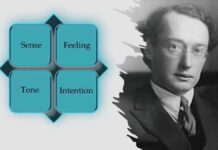Active sentences are about what people (or things) do, while passive sentences are about what happens to people (or things). In academic writing, it is generally preferred to choose an active verb and pair it with a subject that names the person or thing doing or performing the action. Active verbs are stronger and usually more emphatic than forms of the verb be or verbs in the passive voice.
Generally, active sentences make the writing or speech simpler, stronger, and more direct. In most cases, editors and experts recommend avoiding the passive because it’s confusing! A passive sentence is longer and more complicated, making ideas difficult to follow.
The passive form can make your message confusing.
Your message can be made confusing by the passive form.
When to Use Passive Voice
Although active voice is generally preferred in academic writing, passive voice is acceptable under certain conditions. There are times when the passive form is useful and necessary for daily life. For instance, it does a better job of presenting an idea, particularly in the news, and in formal and professional settings.
Passive forms can be useful:
- When the doer is unknown.
We normally use the passive structure when it is not clear who did the action. For example, if your car gets stolen, you probably don’t know who stole it, so you can say:
My car was stolen yesterday.
- When the doer is obvious.
We often use the passive when it’s understood who the doer is:
In our next class, the future tenses will be discussed.
- When people, in general, are the doers.
When we’re not referring to one person, in particular, we can use the passive:
Tickets for the concert will be sold online.
- When you want to be vague about the doer.
Sometimes, you might want to mention something without directly blaming a person:
Mistakes have been made.
- When you want the attention to be on the object.
We use the passive when we want to start the sentence with the most important information:
Italy is known for its excellent wines.
- In formal writing.
The passive might be more appropriate in certain official and professional contexts. For example, in some formal writing, students are generally advised to avoid using I, me or we:
Ten volunteers were asked to participate in the study.
- In scientific contexts.
Here the object (the result) is more important. It’s also obvious that the doer is probably a scientist:
A cure was finally found!
Verbs Not Used in the Passive
Not all verbs can be used in passive forms. For example, passive structures are not possible with intransitive verbs. Intransitive verbs are verbs that don’t take objects.
Because these verbs cannot have objects, there is nothing to become the subject of a passive sentence.
Here are some common intransitive verbs:
- occur
- dance
- laugh
- jump
- relax
- sit
- escape
- smile
- sleep
Also, some transitive verbs are uncommon in the passive. Most of these are stative verbs. Stative verbs are verbs that refer to states, not actions.
Compare:
This shirt doesn’t fit me.
I am not fit in this shirt.
The baby has a toy.
A toy is had by the baby.
Here are some examples of stative verbs:
- has
- appear
- look
- fit
- resemble
- become
- lack
- suit
- sound
- cost
- taste
Phrasal Verbs and the Passive
Here are some phrasal verbs that are commonly used in the passive form:
- Back up
When traffic is backed up, the cars are in a long line and are waiting to continue moving:
Cars were backed up for hours.
- Blackout
When text is blacked out, it is covered with something dark to prevent someone from reading it:
Half of the pages in the report were blacked out for security reasons.
- Fire up
When someone is fired up, something or someone caused them to feel enthusiastic or angry:
She is fired up because no one agrees with her.
- Gross out
If something grosses you out, it makes you feel disgusted:
She was really grossed out by the food.
- Hold up
If a train, bus, etc. is held up, it is delayed:
I’m sorry I’m late, but my train was held up.
- Rip off
If someone rips you off, they steal money from you, or they trick you into paying too much for something:
I think we were ripped off by the taxi driver.
- Seal off
When an area or a building is sealed off, people are stopped from entering it because it’s dangerous:
The area around the park has been sealed off by the police.
- Spread out
When something happens several times over a long period instead of all at once, it’s spread out:
The students said that the course would be better if it was spread out over two years instead of one.
- Take in
If you’re taken in by something or someone, you are deceived by them:
Don’t be taken in by their promises.
- Wash up
If a river or the sea washes something up somewhere, it carries it and leaves it there:
A whale has been washed up on the beach.
Use Passive Voice
- to emphasize the receiver of the action instead of the doer
Quizzes are given regularly.
Grades for all students are averaged.
Questions are encouraged
- to keep the focus on the same subject through several sentences or paragraphs
My sister and I grew up and went to school in Jamaica. We were educated according to the British system. In 1997 we were given the opportunity to come to the United States. We decided to finish high school before leaving our own country. We were concerned that the education in this country might not be as good as the one we had there, and we wanted to improve our English too.
- when we do not know who performed the action
Ray’s calculator was made in Germany.
The answers have been filled in.
- when we do not wish to mention the doer of the action
Many problems have been ignored for too long.
I was given some bad advice.
Note: This use often reveals an unwillingness to take responsibility (or place it on someone else).
A mistake was made. (I made a mistake.)
Not enough has been done to end homelessness. (We have not done enough to end homelessness.)
You have been misinformed. (You are wrong.)
- when we want to sound objective or avoid using the subject I
Studies have shown . . .
It is well-known . . .
Hamlet is considered . . .
It can be assumed . . .
It has been established…






























